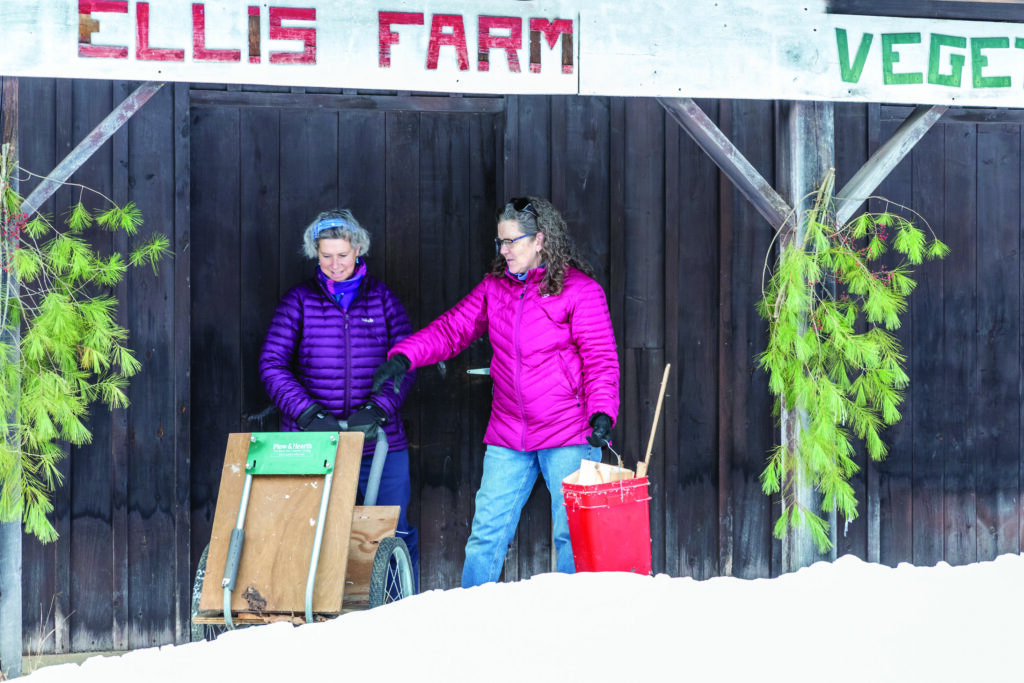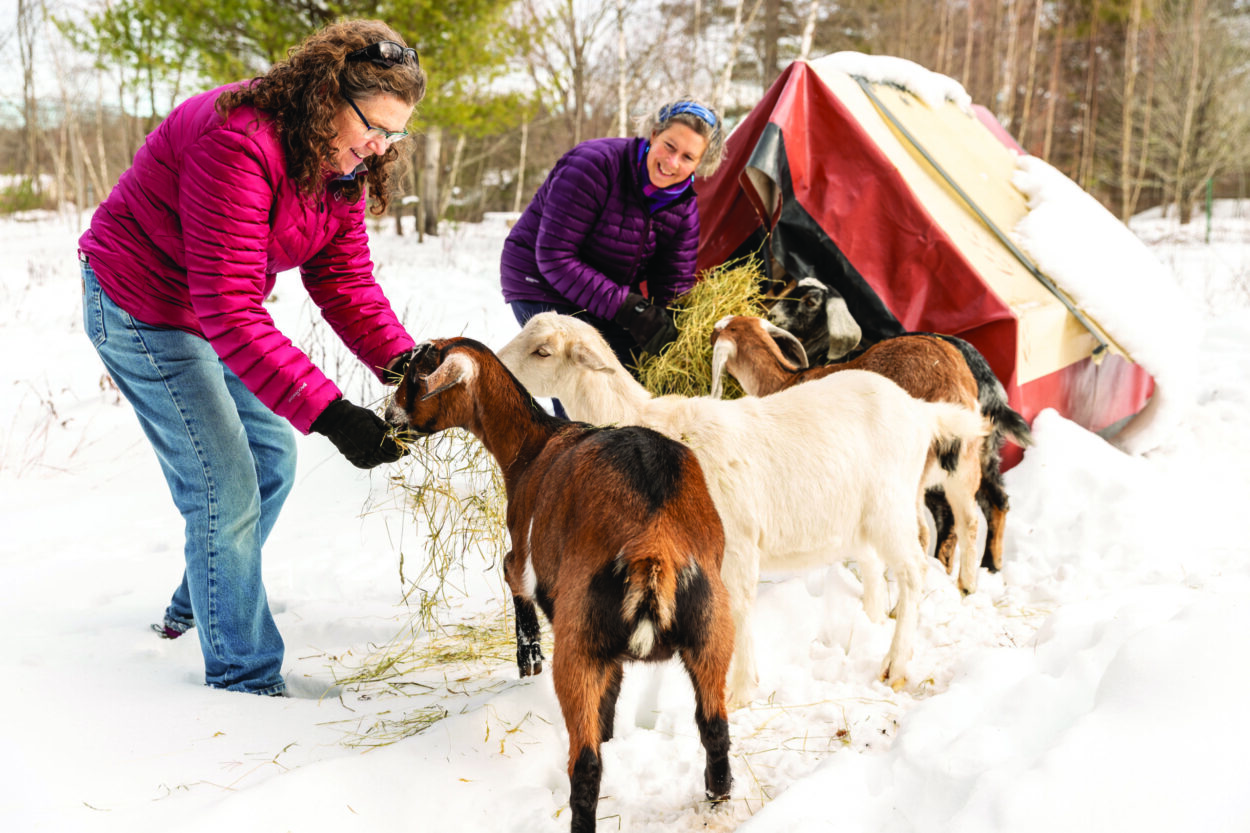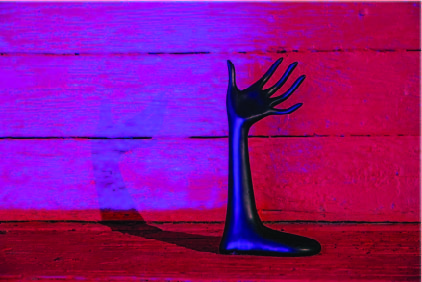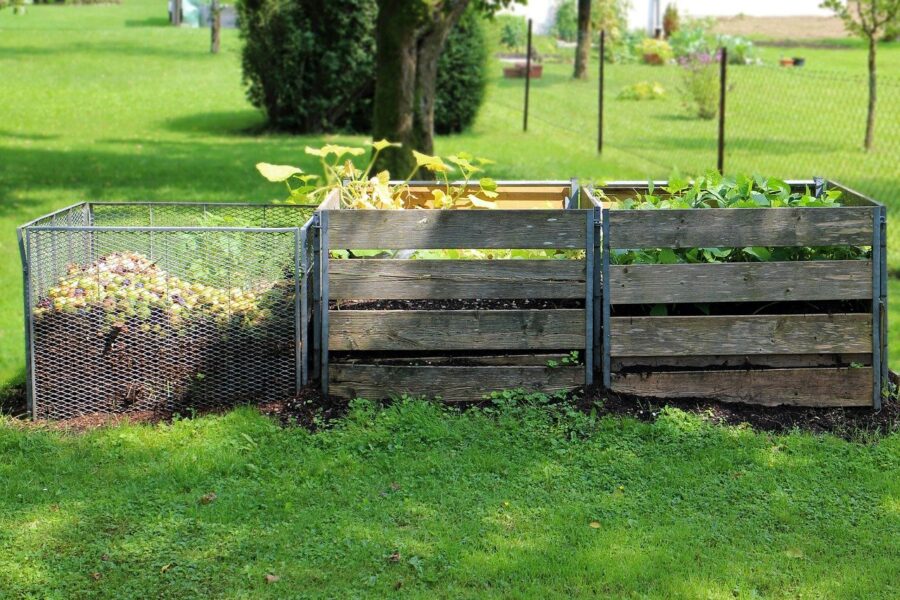It was a pair of foxes that lured Laura Andrews, Antioch’s Director of Institutional Advancement, and her partner Cary Gaunt ’09 (Antioch New England, PhD in Environmental Studies) to the old Ellis Farm.
It was a normal day and they were out for a walk. The sun was shining; the sky was a gorgeous shade of azure blue. Then, abruptly, they came upon two red foxes sitting at the edge of a driveway. They watched the foxes. The foxes watched them. Eventually, they approached the foxes, but the foxes didn’t run away. Instead, they lured Andrews and Gaunt to follow them down a dirt driveway they had never been down before.
The couple walked on and eventually found a rundown farmhouse situated on acres and acres of overgrown land. It was a thicket, for sure, but the land itself was spectacular. Both Andrews and Gaunt saw possibilities spread out before them. With a clear vision and hard work, this abandoned property could be restored to represent a model of sustainability.
Ellis Farm in Its Beginning Stages
In 2018, Andrews and Gaunt discovered that the property was owned by Filtrine Manufacturing Company. A meeting with Filtrine’s president, Peter Hansel, birthed a powerful collaboration that allowed the renovation project to move forward.
Andrews and Gaunt immediately faced some major questions: “How do we undergo an affordable but sustainable renovation of a home and resurrect the land to support farming, pollinator spaces, and that kind of thing? What would be good for the environment, good for the earth, and good for the climate?”
In collaboration with Hansel, they spent a year overseeing extensive renovations of the farmhouse with sustainable materials. It was a complete overhaul including the installation of solar panels, insulation, and other major upgrades. The next year was spent on the grounds, which has been an ongoing process. The property had recently been logged.
Woody debris, roots, and stumps littered the grounds. Gaunt explains that the soil was infertile due to prior farming and then logging. Parts of it seemed like little more than sand and gravel. Andrews and Gaunt hired a permaculture expert who helped them revitalize the soil through the process of hugelkultur, a permaculture gardening technique in which you make garden beds out of organic material that may not yet be done decomposing. “He dug trenches to bury the woody debris and stumps, then added a bunch of compost, wood chips, and dirt, and now it’s really fertile soil,” says Andrews.
Spiritual Principles Bind an Ethic of the Land
Respect and honor for the land are constant themes that govern Andrews and Gaunt’s work. For their farm, Gaunt created a proposal that includes a set of guiding principles that detail the scope of the renovations. Central is the concept that, as earth inhabitants, we must listen to the land and be mindful of its needs.
“This particular piece of land is nestled in a neighborhood,” Gaunt adds, “so it’s really about listening to, what does the earth ask of us right now? What do the beings of this earth ask of us right now? And then taking that concept of ever widening circles—from Rainer Maria Rilke’s poem “Widening Circles”—and pondering, what does the community ask of us now?”
There is a widespread desire today to leave the earth better, on both local and global scales, than how we found it. According to Gaunt, we all can learn to do this through sustainable living. Small changes in our daily lives can lead to tremendous change. That means being good stewards of our land. When we honor the land, we give space and opportunity to the creatures that inhabit it. The renovations have in part sought to domesticate the land, but in other areas they have worked to preserve and respect its wildness.
Restoring the grounds at Ellis Farm will create a lasting, flourishing habitat that also benefits the Keene community in the long-term. Andrews and Gaunt hope that the project will provide a tranquil space for personal enjoyment and learning, including sustainability education that teaches other community members how to create their own gardens and implement small changes that benefit the environment.
Collaborating for the Greater Good
Ellis Farm has also become a key site for collaborations and connections across Keene, and especially with the wider Antioch community.
For instance, Peter Hansel, a former AUNE trustee and president of the Filtrine Manufacturing Company was pivotal to beginning renovations at Ellis Farm. Several years ago, Andrews and Gaunt invited Daniel Prial ’16 (Antioch New England, MA in Environmental Education) to serve along with his wife, Anne, as one of Ellis Farm’s lead farmers. The Prials were key in helping to design and implement some of the systems around the farm.
Recently, they collaborated with the Cheshire County Conservation District and its district manager, Amanda Littleton ’07 (Antioch New England, MS in Environmental Education) on a grant to create a pollinator garden that brings in bees, butterflies, moths, and other pollinators. Says Andrews, “We now have a basis for planting that includes a pollinator project plan.” This collaboration has allowed Ellis Farm to accomplish one of its key goals.
And the Antioch connection goes deeper still, as the outdoor education advocate Liza Lowe ’09 (Antioch New England, MEd in Elementary Education), who teaches at Antioch New England and directs its Inside-Outside network, is in conversation with Andrews and Gaunt to collaborate in some capacity. Unfortunately, the pandemic has put this collaboration on pause for now.
The experience of being so integrated with their community is deeply satisfying for both Andrews and Gaunt. The entire vision for the farm “is an integrated, holistic project—which was always the hope and the dream,” says Gaunt. It’s a dream they are accomplishing.
A Model Farm for Future Generations

The property is now on its way to becoming a flourishing, spiritual oasis. Before COVID hit in 2020, the Prials brought four baby goats to live at Ellis Farm. Like the foxes, these goats have played a huge role in the project.
“The four goats are grazing all of the brush that’s around the property and adding organic manure,” Andrews says. They also improve the emotional wellbeing of visitors who interact with them. One activity they have considered is goat yoga—yoga classes held outside, with goats wandering among the stretching participants, butting heads with them, and even climbing on their backs. Explains Andrews, “These little baby goats crawl all over you—they’re just so cute!” In this and so many other ways, the goats have become part of the Ellis Farm team.
Restoring the land at Ellis Farm has been a passionate mission for both Andrews and Gaunt and has also inspired them in remarkable ways. Andrews says, “My work at Antioch has been around drawing people together around common purposes. The work here feels like a similar type of thing. We’re drawing people together who are interested in fulfilling their passions.”
Gaunt particularly appreciates the way that their work and vision has sparked people to action. “There’s an ability to empower people to look around where they are and think differently about how to make change,” she says. “We are doing that here . . . It’s been much more difficult than I think either of us would have anticipated, but we’ve accomplished a lot.”





